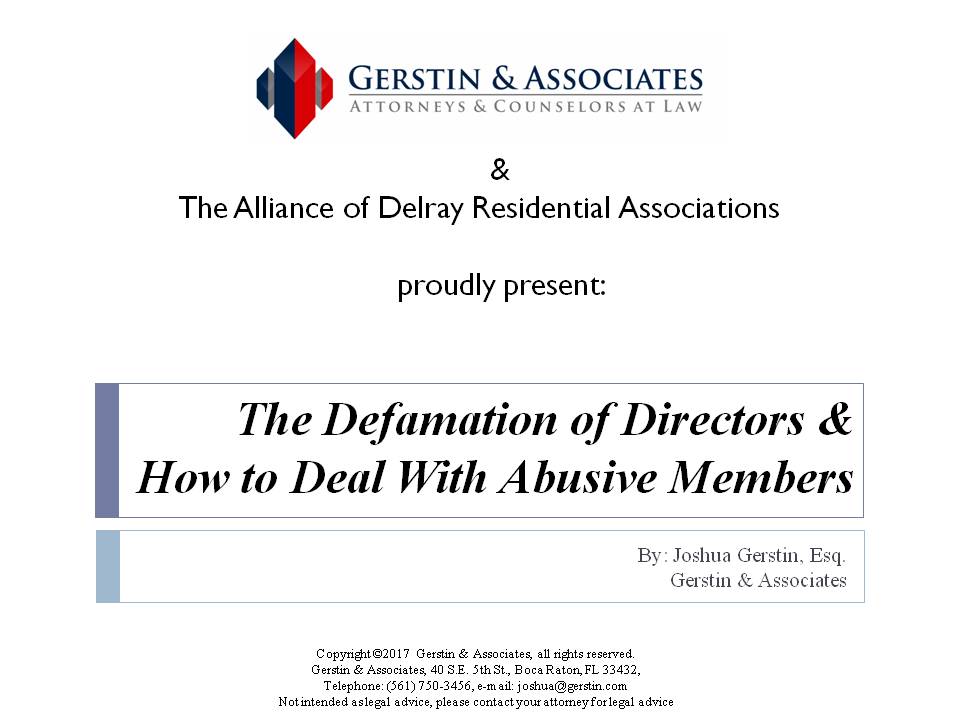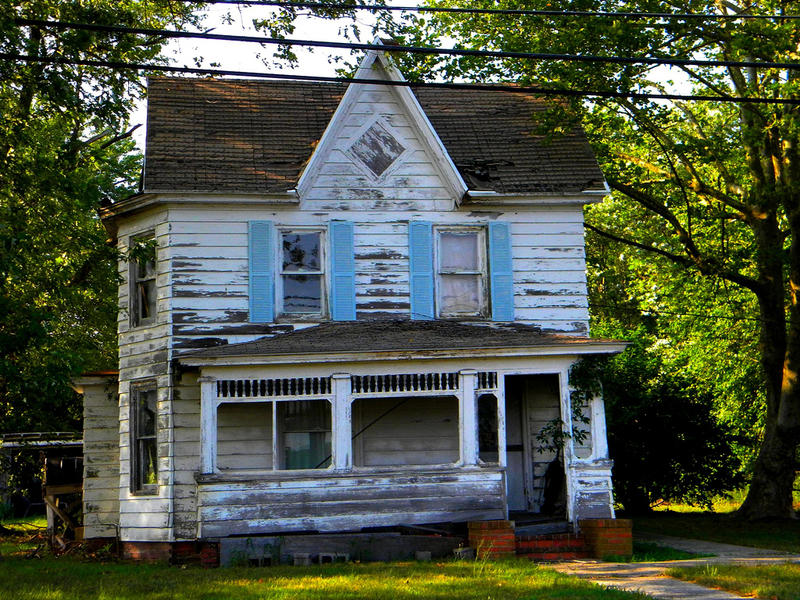– Disclosing the Names of Infected Members in Florida’s Community Associations.
By: Joshua Gerstin, Esq. (click here for .pdf version)
If a community association is aware a member has the coronavirus, the first step for the association should be to alert its members without naming the infected member(s). In this initial alert, the Association should remind its members to follow the guidelines of the local governing authorities and the CDC regarding staying healthy during this pandemic (washing hands, social distancing, etc.). After sending the initial alert, determining whether the association can or must disclose the identity of an infected member is the troublesome next step. Although this issue has not been decided by the courts or an administrative agency yet, there are various laws governing the disclosure of confidential medical information Florida’s community associations should familiarize themselves with.
The most widely known law covering medical information confidentiality is the federal Health Insurance Portability and Accountability Act known as “HIPPA”. According to HIPPA, community associations do not qualify as a “covered entity” (ex. doctor’s office, etc.). As such, HIPPA generally does not apply to most of Florida’s community associations. However, Florida Statute §456.057 entitled Ownership and Control of Patient Records; report or copies of records to be furnished; disclosure of information (“Florida Medical Records Act”) and Florida Statute §720.303(5)(c)(4) (for homeowner associations) or §718.111(12)(c)(3)(d) (for the condominium associations) pertain to medical records within an association’s Official Records and may apply if the association has possession of the owner’s medical records indicating he/she is infected. Based on a “strict reading” it is reasonable to conclude these Florida statutes ( §720.303(5)(c)(4), §718.111(12)(c)(3)(d) and §456.057) prohibit a community association from disclosing the identity of an infected member when knowledge of the infection was obtained from information contained in the infected member’s medical records.
In most instances, a community association will not be in possession of medical records indicating a diagnosis of infection. Often times, an association will learn a member is infected from the inadvertent or purposeful disclosure by a care provider. In such instances, the association should determine whether the sick member authorized the disclosure to the association. If so, the association should ask the sick member for written authority to disclose the information identifying him/her as having the coronavirus. Without written approval from the sick member, the purposeful or inadvertent disclosure by a medical professional of an infection does not give the association the ability to broadcast the same information to all of its members free from liability for its actions.
Most often, the association will have third or fourth hand information from an owner who knew or saw something leading them to conclude a member has been infected. Broadcasting such information to other members, although it may seem at least anecdotally accurate, will subject the association to liability.
Some alternative approaches to disclosing the name of the infected member(s) are:
1. Contacting the local health authorities and obtaining their opinion as to whether this person, based on the surrounding demographic, should be brought to a hospital for quarantine or what steps the person and the association should take.
2. Contact the individual to determine whether he or she would consent in writing to the disclosure of the infection. If the answer is yes, no problem, the association can disclose.
3. The Association should determine whether the individual and the in-home care givers are both isolating in the home and not going outside other than in their backyard or on their balcony. The association should routinely check-in with the person/caregivers via telephone and driving by as much as practical. Many condominium associations have security cameras that can monitor whether the infected member has left his/her unit and entered a common area or came into contact with a common element (ex. elevator). The Association should continue this for the longest maximum time the CDC states a person is infectious. If an infected member flouts the CDC isolation guidelines, the police and local health department should be notified and asked to take action. Relaying this health related information regarding an infected member to the health or police authorities would most likely not violate the above cited laws.
4. Florida’s condominium associations should enact an action plan for banning any infected members from using the common areas and common elements (if they are not closed already). These plans should be done at a meeting of the board of directors with its attorney that is closed to the membership due to the discussion of medical information and anticipated litigation. However, the infected member(s) cannot be denied ingress or egress to their units/homes. Therefore, especially in Florida’s condominium associations, a plan for extra, sustained cleaning of all common elements (ex. elevators) and common areas are a must.
Community association members, especially those in 55+ communities, are rightfully afraid of catching the coronavirus. As we become aware of the increasing amount of infections, community association members will demand their associations release the names of the infected with impassioned pleas for their own safety. When this happens at your community association, your initial focus should be on alerting members to the many ways they can protect themselves while consulting with the association’s attorney and local health professionals in the development of an action plan.






